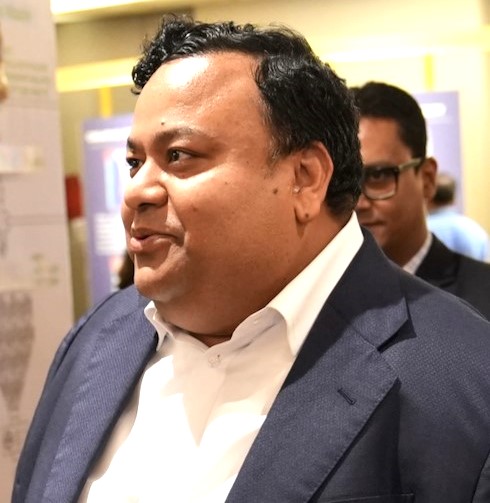A Dhaka court has ordered the seizure of 19 flats, four plots, two houses, and over 85 decimals of land owned by former Padma Bank Chairman Chowdhury Nafeez Sarafat, his wife and their son.
Metropolitan Sessions Judge Zakir Hossain Galib issued the order on Tuesday upon a petition from the Anti-Corruption Commission (ACC).
ACC Deputy Director Masudur Rahman filed the petition as part of an ongoing investigation into serious allegations of corruption, fraud, bribery, and money laundering against Sarafat and his associates.
Akhtarul Islam, deputy direction (public relations) of the corruption watchdog, confirmed the court order, saying it was necessary to prevent the transfer or concealment of assets during the probe.
According to the ACC, Sarafat, during his tenure as chairman of Padma Bank (formerly Farmers Bank), engaged in large-scale financial misconduct.
He and his associates allegedly embezzled substantial sums through bribery, document forgery, and abuse of power, while also defrauding clients and laundering illicit funds under the guise of legitimate transactions.
Initial findings suggest the seized properties were acquired illegally and fall outside known sources of income. Located in various parts of the country, the assets are registered under the names of Sarafat, his wife Anjuman Ara Shahid, and their son Chowdhury Rahib Safwan Sarafat.
The ACC reported that the accused had attempted to transfer or mortgage these properties, prompting the need for a court-ordered freeze to preserve them as evidence.
The seizure was ordered under the Money Laundering Prevention Act and the Anti-Corruption Commission Act—both of which classify the acquisition of assets through corruption or conspiracy as criminal offences.
All three family members are currently absconding, according to ACC officials. A three-member panel has been formed to further investigate the case, and legal proceedings are expected to intensify.
Padma Bank has been embroiled in controversy since its inception in 2013. Founded with political backing during the Awami League government, it quickly became synonymous with irregular lending practices and internal corruption. By 2017, the bank was facing a severe liquidity crisis, driven by non-performing loans and alleged insider lending.
Investigations by Bangladesh Bank revealed that large loans had been disbursed without proper documentation or collateral. Several senior executives and board members were implicated. In 2018, the government restructured and rebranded the bank, injecting state capital to keep it operational.
Nafeez Sarafat played a central role during the bank’s most troubled period. Though he eventually resigned under pressure, allegations of financial misconduct have continued to surface.
This latest court order is part of a broader anti-corruption drive under Bangladesh’s interim government, which has pledged to hold financial offenders accountable, regardless of political affiliation.
The ACC’s renewed efforts reflect growing public demand for transparency and justice in high-profile financial scandals.


